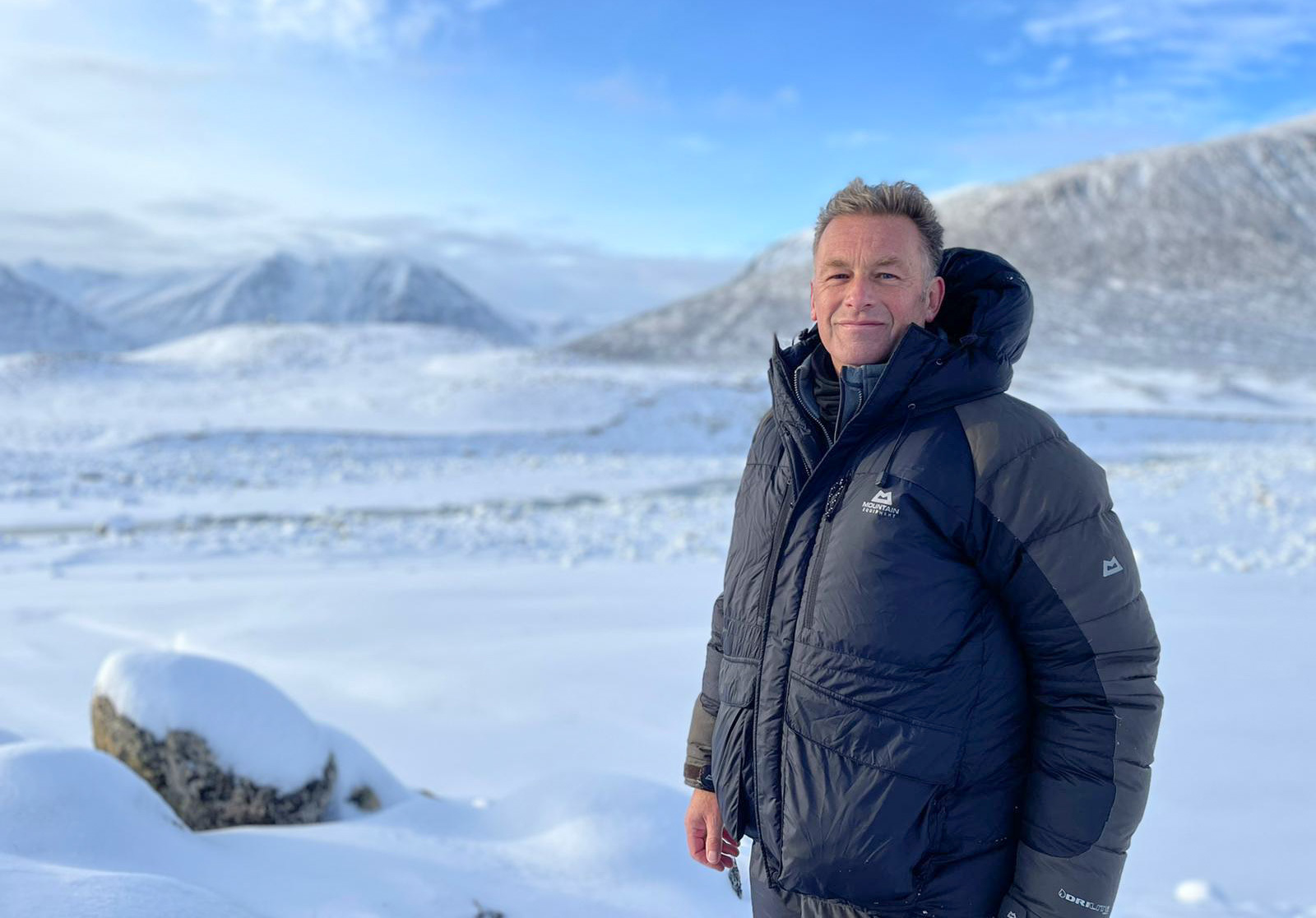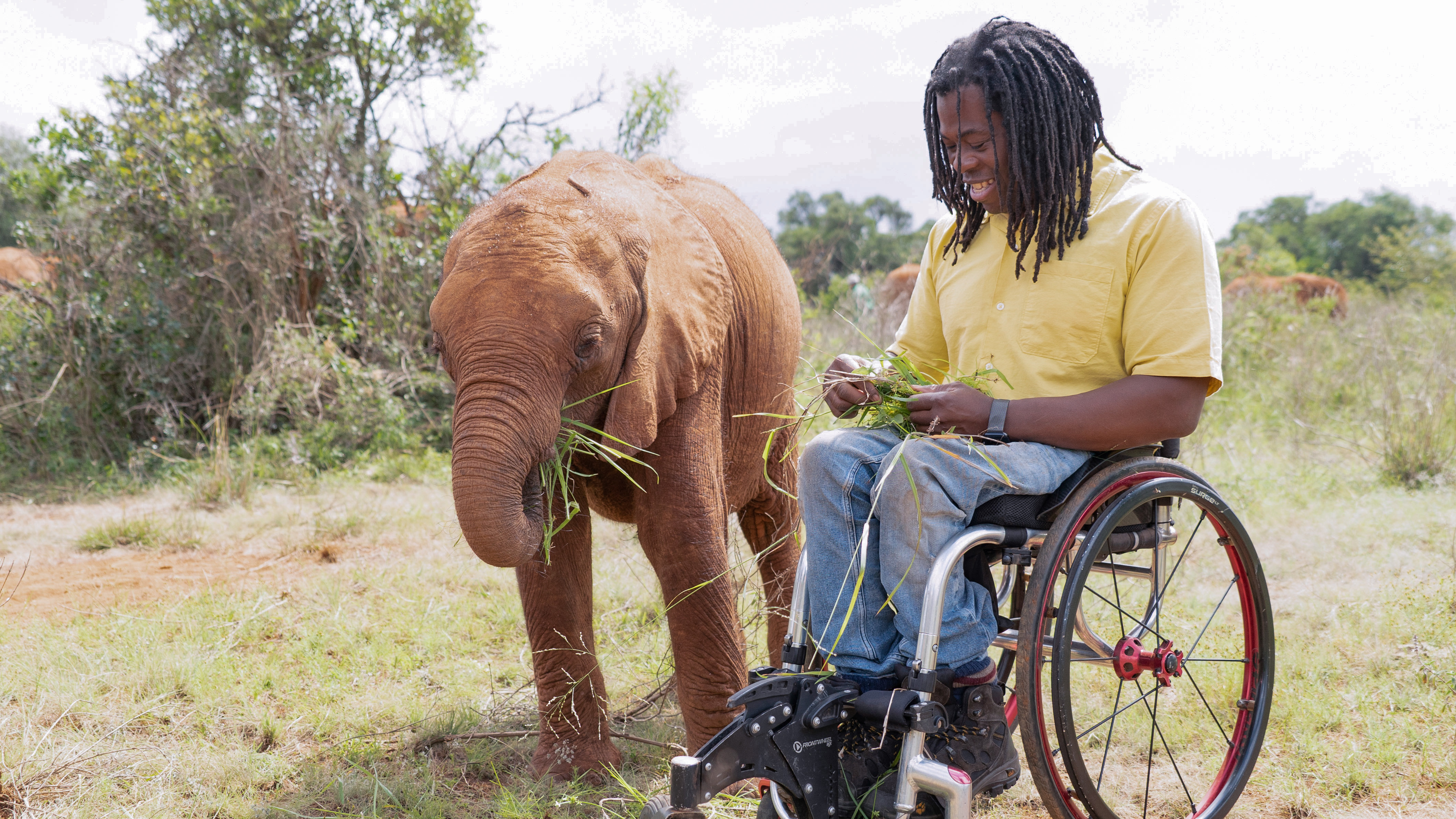
In 2022, the BBC launched Our Changing Planet — an ambitious seven-year project monitoring six of the planet's under-threat ecosystems to see the impact of the changing environment on the natural world.
This year, the series returns to bring us an update on the six stories covered in the first season, as well as important new developments from all across the world.
Here's everything we know about Our Changing Planet season 2 so far...
Our Changing Planet season 2 release date
Our Changing Planet season 2 returns to BBC One on Sunday, April 16 at 7 pm.
There are two episodes in the second season, with the second airing on Sunday, April 23 at 7 pm.

Our Changing Planet season 2 presenters and locations
The six presenters from the first season are all returning with new reports from their respective locations: Chris Packham in Greenland, Liz Bonnin in California, Steve Backshall in the Maldives, Gordon Buchanan in Brazil, Ella Al-Shamahi in Cambodia, and Ade Adepitan in Kenya.
Our Changing Planet season 2 episode guide
Episode 1: Steve Backshall returns to the Maldives, where the acidification of the oceans has led to coral bleaching on a massive scale. He learns more about a project being run by Professor Steve Simpson and his team from Bristol University, where an important discovery has been made about how the soundscape of the reefs plays a key role in their future health.
Liz Bonnin heads back to California, where the risk of wildfires remains a serious problem. However, the secret to keeping wildfires at bay could lie within traditional forest management techniques and a much-misunderstood mammal — the beaver. Liz visits the reservation of the indigenous Tule River Tribe to find out about the technique of controlled burning.
Chris Packham goes back to Greenland to learn more about the impact of global warming. Visiting a research station in a remote part of Greenland, Chris joins a group of scientists in search of a group of musk oxen to collect vital data about their movements and habits that could help to protect them in years to come.

Episode 2: Gordon Buchanan returns to Brazil, where he learns more about how an ecotourism project has helped to protect the wild jaguars of the Pantanal. However, the future of the Pantanal is under threat from a proposal to build six hydroelectric dams upriver, which could spell disaster for the wildlife of this precious ecosystem.
Ella Al-Shamahi is back in Cambodia, where she learns more about how sand mining in the Mekong River is endangering the health and structure of the river. She also joins a group of conservationists who are reintroducing Siamese crocodiles — once thought to be extinct in the wild — back into their natural habitat.
Finally, Ade Adepitan heads back to Kenya where he learns about the ongoing impact of the drought on the nation's elephant population. He learns that elephants and humans are coming into conflict over access to the scarce food and water supplies, and finds out what measures are being made to help them live harmoniously.
Ade Adepitan interview for Our Changing Planet season 2
How would you describe the aims of this series?
"This series sends six presenters to six different parts of the world, and the aim is to document and follow the impact of our changing planet, and our changing climate, on the animals in these different parts of the world. I was going back to Kenya, doing some work with the Sheldrick Trust, to follow the impact that the drought and climate change were having on elephants that have become orphaned out there. It's a hard, heavy story, but it's an important story, and it's also beautiful — it's that fight over adversity, and looking at all the ingenious ways both the animals and the humans are coming up with to try and combat the way our planet is changing."
What did you learn during your return visit?
"The drought has made the elephants' food and water sources scarce. The elephants will go to watering holes, drink in them and eat all the food around the watering holes, then the next one will be further and further away. Their calves are no longer able to survive that long journey, because it's getting too far for them to travel. So what would you do, if you were a massive elephant and the life and death of your calves is in your hands? You'd look for the nearest food supply — and it's usually on local farms and in local villages. Because they're starving, elephants had started breaking into compounds and eating people's crops — a lot of these people don't have much as it is, and in one night an elephant could eat a whole year's worth of crops and do a heck of a lot of damage."

How has that affected the relationship between humans and elephants?
"Some of the human/elephant conflicts have been fatal — elephants have been killed or fatally injured, and humans have been trampled on and caught up by startled elephants. One of the scientists out there, Dr Lucy King, has created a toolkit in how to cope with elephants breaking into the compounds, looking at natural ways of repelling the elephants. Believe it or not, elephants are scared of bees, so they would get beehives and put them on the edges of the farms and compounds to scare them off."
How important is it for this show to keep returning to these locations and reporting the latest stories?
"If we didn't, it would be like me trying to teach my son how to ride a bike, and just as he's starting to learn how to get his balance, me just saying 'let's not bother anymore, let's go and watch Coronation Street' or something. He'd be frustrated, he won't learn anything, I won't learn anything — so I think it's important that we finish the story, otherwise, it makes no sense doing this. It's actually worse not to finish the story."
What has the reaction been like since the series launched in 2022?
"Well, people love cute animals, and there's lots of cute animals in this series: jaguars, elephants, and all the sea creatures in Steve Backshall's episode as well. When people approach me, they talk about how beautiful it is, and how amazing the bond is that I have with the elephants. But what I would like to do is sit down and have a proper, deeper conversation and say, 'are you joining the dots here?' Beyond the cuteness, there's a lot more to this, we want these animals to be around and keep their cuteness on the planet for thousands more years, and it's not going to happen if things don't change."







